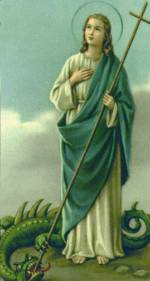| Author | |
Barb.b
Forum All-Star

Joined: June 22 2007
Online Status: Offline
Posts: 748
|
| Posted: June 09 2014 at 4:08pm | IP Logged
|
 |
|
What did you all do for 11th grade American history and Literature. I love the concept of combining them - but am NOT up to creating it myself. I have seen something on the internet (Exploring America? Not sure of name) - I see it combines bible so I am worried it is too Protestant.
Also, would love to know what you did if you didn't combine them!
Hint - I really want to just unpack it and go with it!
Oh - and I am getting really discouraged at seeing extremely large U.S. history texts - like 1,300 pages!
Barb
|
| Back to Top |


|
| |
Martha
Forum All-Star


Joined: Aug 25 2005
Location: N/A
Online Status: Offline
Posts: 2291
|
| Posted: June 09 2014 at 9:20pm | IP Logged
|
 |
|
Ugh. I *think* I literally just threw away my US history CLEP with literature study outline with booklist....
__________________
Martha
mama to 7 boys & 4 girls
Yes, they're all ours!
|
| Back to Top |



|
| |
guitarnan
Forum Moderator


Joined: Feb 07 2005
Location: Maryland
Online Status: Offline
Posts: 10883
|
| Posted: June 09 2014 at 10:08pm | IP Logged
|
 |
|
When I was in Catholic school, way back when, our American Lit selections went something like this:
Poetry of Anne Bradstreet
"Sinners in the Hands of an Angry God" by Jonathan Edwards
Poems of Phillis Wheatley
The Last of the Mohicans (not popular with our class)
Civil Disobedience
Walden
Poems by Walt Whitman
The Adventures of Huckleberry Finn
Ethan Frome
Billy Budd, Sailor
The Sun Also Rises
The Great Gatsby
Of Mice and Men
The Crucible
One Flew Over the Cuckoo's Nest
We read something by Nathaniel Hawthorne, but it was not memorable. I read The House of the Seven Gables and A Wonder Book and Tanglewood Tales in middle school, and I suspect we read excerpts from the latter.
ETA: "Rappacini's Daughter" leaps to mind. We probably also read the Mayflower Compact and a few other items from the Norton Anthology of American Literature.
__________________
Nancy in MD. Mom of ds (24) & dd (18); 31-year Navy wife, move coordinator and keeper of home fires. Writer and dance mom.
|
| Back to Top |



|
| |
Barb.b
Forum All-Star

Joined: June 22 2007
Online Status: Offline
Posts: 748
|
| Posted: June 10 2014 at 8:23am | IP Logged
|
 |
|
Thanks,
I think I will Have to treat these 2 subjects separately.
Barb
|
| Back to Top |


|
| |
SallyT
Forum All-Star


Joined: Aug 08 2007
Online Status: Offline
Posts: 2489
|
| Posted: June 10 2014 at 9:30am | IP Logged
|
 |
|
Barb, here are my very detailed plans for U.S. History and Lit through the end of the 19th century. They may or may not be helpful, but maybe there's something to glean.
So much of what's included as American literature, especially in the early part of our history, is really just primary-source historical text material anyway that to my mind it does make sense to integrate history with literature to a great degree. You really only start to see a lot of what we'd think of as imaginative literature as the culture starts to settle down into nationhood and become relatively stable -- even then, it's interesting to look at the imaginative literature alongside things like speeches, letters, chronicles, and political documents.
As I said in another thread, we're using Paul Johnson's History of the American People as our spine, but using primary-source material, including imaginative literature, as our primary focus. I've scheduled some major novels throughout -- Death Comes For the Archbishop is by Willa Cather, who's a late-19th/20th-century writer, but it offers a window into the Spanish Colonial period in New Mexico, so I scheduled it early in our history study, rather than "in its period." My son will be reading Huckleberry Finn all year, because it's long and because it's more or less *the* American novel. Scarlet Letter will also overlap the Puritan period which is its setting and the early-19th-century Transcendentalist period in which it was written.
And so on. Again, maybe helpful to you, maybe not. :)
Sally
__________________
Castle in the Sea
Abandon Hopefully
|
| Back to Top |



|
| |
Kelly
Forum All-Star

Joined: Feb 21 2005
Online Status: Offline
Posts: 1211
|
| Posted: June 11 2014 at 12:17am | IP Logged
|
 |
|
Good point, Sally, about the intersect of American history primary docs as lit.
"Death comes to the Archbishop" is 1 of my top fave books. It can be read as spanish colonial history, as 19th century American western expansion history, as quasi-biographical (bishop lamy/latour was a real and beloved cleric in Santa fe-you can still visit the little chapel he built outside of town for his retirement-OR the cathedral that he was instrumental in having built!) and other real people also figure in the book (most notably Kit carson), or you can read it as a simply beautifully written, eloquent piece of literature! You could do an entire course only on this book... In fact, i believe Homeschool Connections DID do just that and has a highschool level class on DCTTAB! 
Kelly in FL
|
| Back to Top |


|
| |


 Topic: U.S. History and Lit
Topic: U.S. History and Lit






